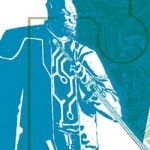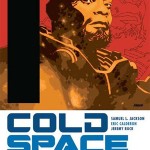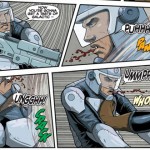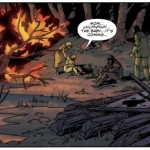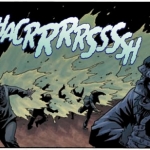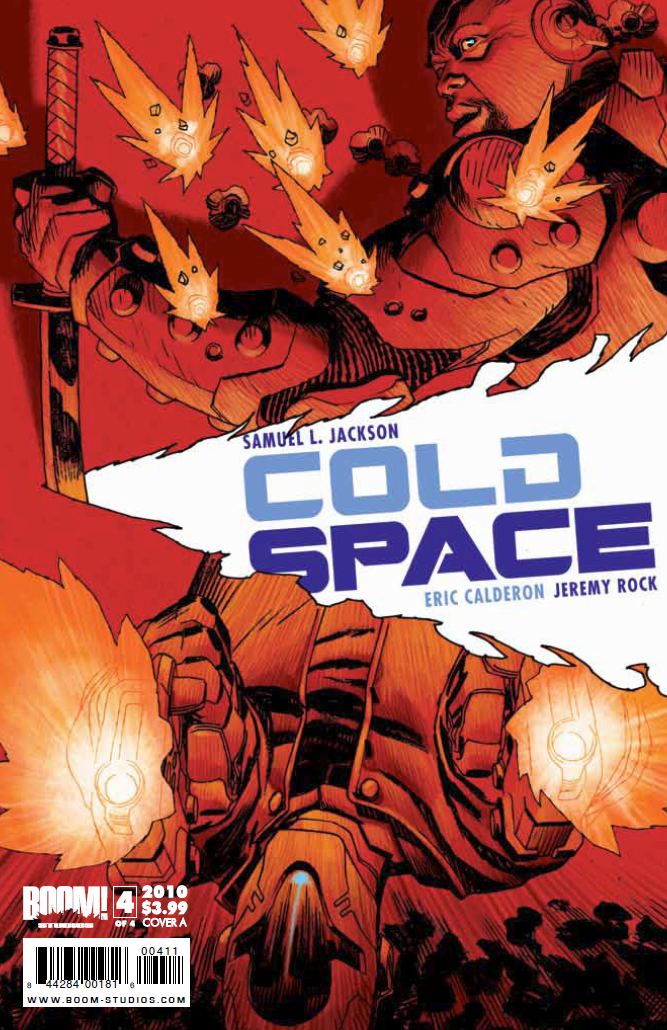
Issue: Cold Space #4
Release Date: July 7, 2010
Writers: Samuel L. Jackson and Eric Calderon
Art: Jeremy Rock
Colors: Juan Manuel Tumburús
Letters: Troy Peteri
Cover A: Dave Johnson
Cover B: Jeffrey Spokes
Publisher: BOOM! Studios
Space and the Wild West, is… well, a wild combination. Logically, the two shouldn’t work together. Whereas in one realm, flying is the most direct form of transportation, horse, buggies and trains dominated the other. In Cold Space, however, these seemingly opposite worlds collide to create a comic with a bit of an identity crisis. Gunslingers, gangs, and galactic freelancers all mingle together, and, while the setting is certainly eclectic and never clearly defined, it certainly is a fun and unique playground for Mulberry and his trouble-attracting escapades.
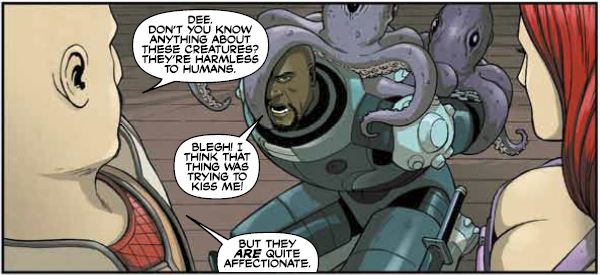
Evidently, Mulberry is *not* having a good day.
However, Cold Space could never survive solely on its quirky (though enjoyable) setting. No, rather, it was the tone that made the difference. Cold Space is not a complex piece of literature, and nor does it try to be. The language, plotting and conflicts are all too simple, and the only metaphors that exist are in the form of insults by the story’s main character. But, in Cold Space’s case, none of that really mattered, for the comic had already established itself on one principle: fun. Forget double entendres and red herrings — Cold Space had no need for those, and instead relied on the likability of its characters and their crazy antics: Zed’s willingness to work for drug money, Dee’s fiery soul, Billy’s unstable yet tough image and, of course, Mulberry’s ability to get the job done in the snarkiest and most bad-ass way possible.
Although none of the established formula necessarily changes in Cold Space’s final issue, the momentum does slip a bit and things become unfocused, leading to a conclusion that, although suitably wrapping things up, is a little anticlimactic and abrupt.
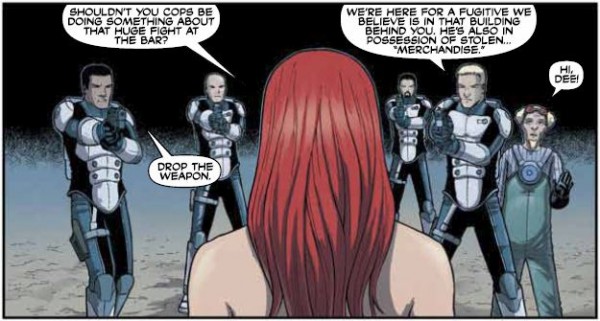
Dee is confronted.
While heavy on action, dialogue is kept to a minimum, and the comic jumps from one set piece to the next at an exhausting pace. Sure, the story’s loose ends are all tied up along the way, but they are done so in a way that is, while satisfactory, lacking of any emotion or gravity. Plot lines that should have finished with a bang merely end with a fizzle… well, save for maybe one exception.
Sure, while the lack of tension, suspense and surprise is certainly a downer, none of these exclusions spell disaster for Cold Space’s finale — they just don’t allow for a very epic one, either. There are some nice action sequences throughout, and the comic should be praised for its ability to seamlessly move from one explosive set piece to another with minimal confusion; there’s certainly a lot going on, but it’s all manageable and easy enough to keep up with. Yes, some instances of awkward wording and dialogue choices remain, but that’s out of my own pickiness; others may not to take issue with it.
In terms of art, Cold Space’s fourth entry seems to be lacking. Whereas I had mostly applauded the efforts of Jeremy Rock in issue three, his work here seems to be missing inspiration and originality. Apart from perhaps two or three notable illustrations, the rest of the drawings seem drab and even a bit boring. Gone is some of the impressive detail from earlier entries; these are instead replaced with a few caricatures that look elementary in comparison. None of the art is necessarily terrible, per se, but there’s certainly nothing special here, either.
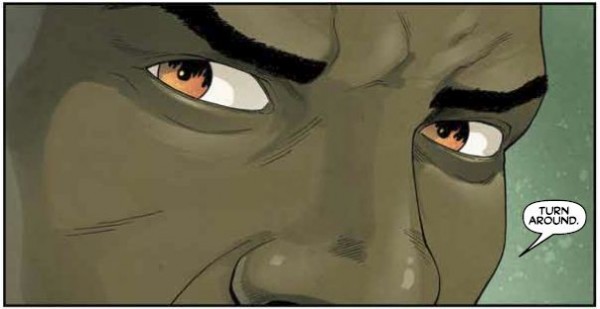
Cold Space was certainly a fun read; rife with action, fun one-liners and characters that played well off one another, Samuel L. Jackson’s second foray into the world of comics was, for the most part, a successful one. The tone, lighthearted and frivolous, was created from the get-go, and, thankfully, both Jackson and Eric Calderon kept with it throughout the comic’s run. But one can’t help but to think of what more Cold Space could have been. There was plenty of potential that the comic never tapped into; namely, a more dramatic story would have allowed for greater character development and, of course, something more memorable.
Ultimately, if Samuel L. Jackson was hoping for Cold Space to become a cult-classic (à la Afro Samurai), he missed the mark; Cold Space lacks the same campiness. But if all he was aiming for was a fun, fast and no-frills read that captured his essence, Cold Space is a sure winner.
Rating: 3 / 5 Stars (for final issue); 3.5 / 5 (entire series)


